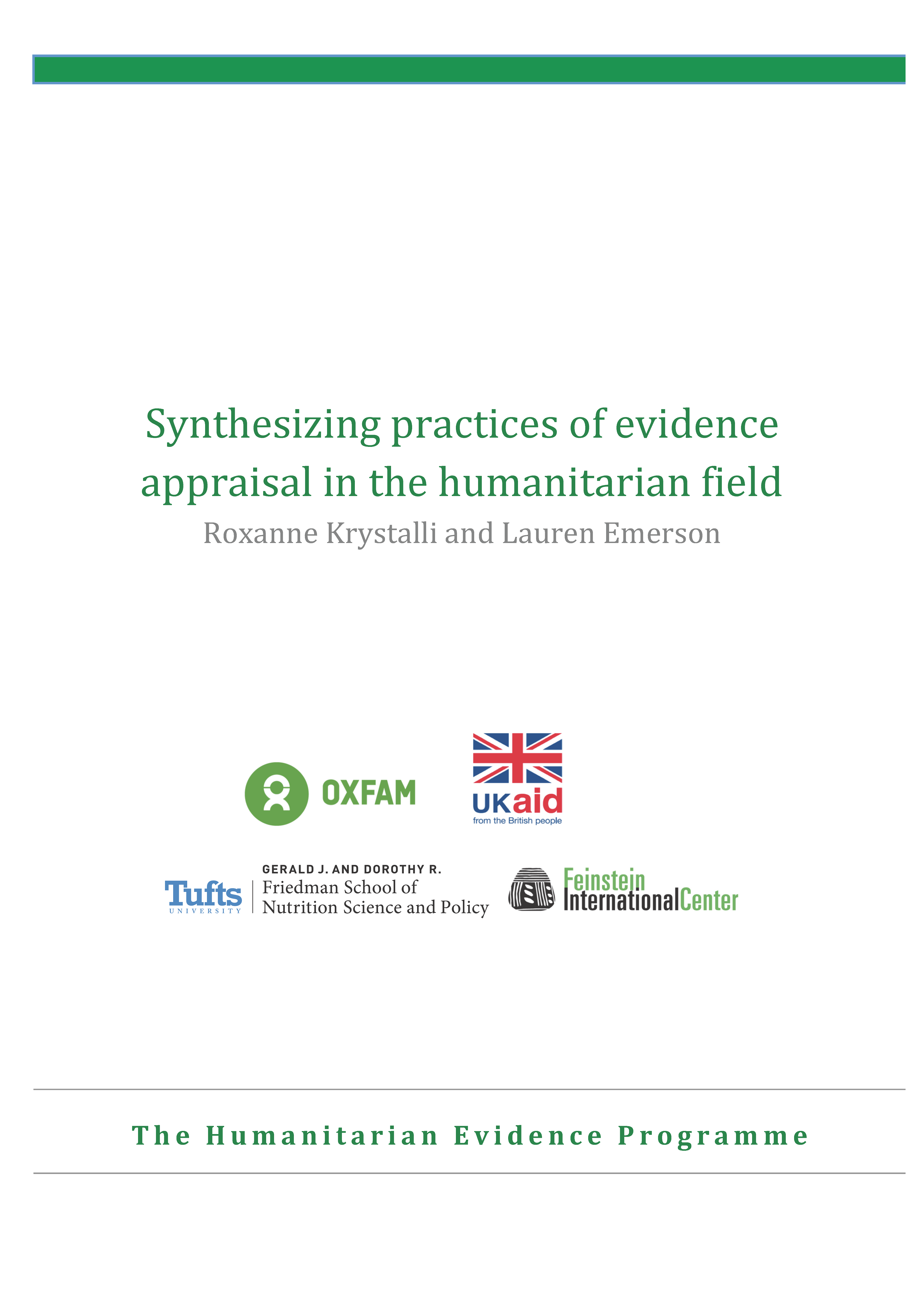This paper synthesizes evidence appraisal practices to inform evidence syntheses in the Humanitarian Evidence Program. It is addressed to all audiences interested in humanitarian evidence, including but not limited to researchers, humanitarian practitioners, and policymakers. The paper helps answer the question, ‘How confident are we in the quality of evidence supporting a finding?’ A briefing paper summarizing key findings is available at this link, and the catalog of evidence appraisal approaches can be found here.
Evidence appraisal is integral to the review process: when clear and context-appropriate, it contributes to the transparency and rigor of the evidence synthesis. Rather than prescribing a particular evidence appraisal approach, the Humanitarian Evidence Program summarizes evidence appraisal practices relevant to the humanitarian field and offers some suggestions in critically applying them to the realities of humanitarian data analysis, synthesis, and interpretation.







